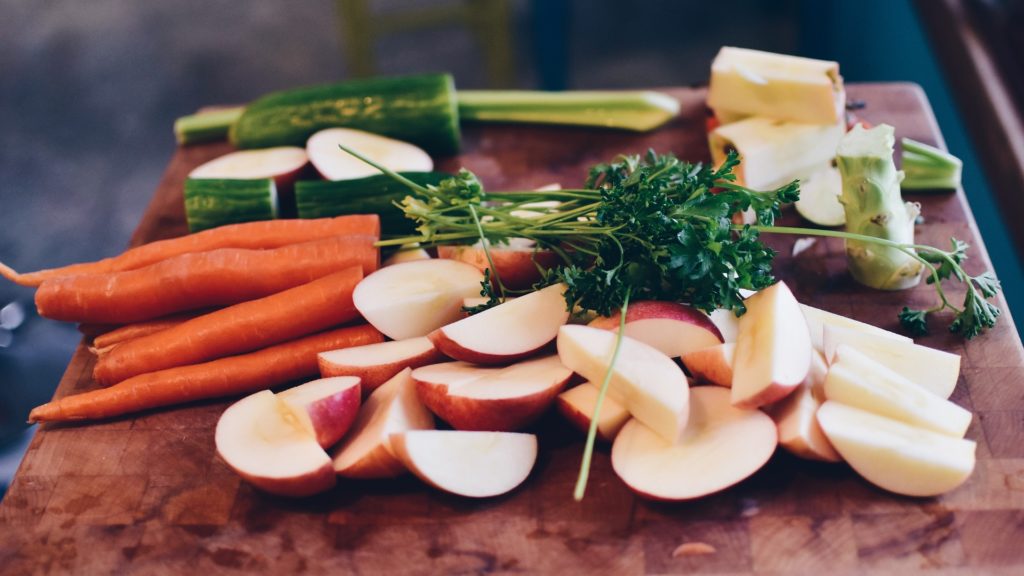Pregnancy is an exciting part of a new life cycle for both Mom and baby! This is not an exhaustive overview of nutrition for pregnancy as there is so many factors that take into account including healthy weight gain, caloric, macronutrient and micronutrient needs. Today’s blog will walk you through some of the most important nutrients needed during pregnancy, why they are so important and how to make sure your intake is optimal.
Choline
Choline is often overlooked during pregnancy, but it plays an important role in brain development and visual memory as well as proper nervous system development. Supplementation of choline in the third trimester is even linked to increased infant cognition and processing speeds. Choline is converted into betaine, a substance important for gene regulation and brain development. The recommended amount of choline for pregnancy is 450 mg/day. Eggs are a great dietary source of choline as are beef, fish and poultry, but we think the research is pretty solid on using a supplement during pregnancy to ensure optimal intake. In fact, the USDA estimated this year that a mere 8% of pregnant women get enough of this essential nutrient, making supplementation a good idea for most.
EPA and DHA
Found in fatty fish like salmon, herring, mackerel and sardines, these essential fatty acids (EFAs) are very important for fetal brain, retina and nervous system development. EPA and DHA are part of the Omega 3 family of fatty acids. EPA reduces inflammation and risk of blood clots and supports the immune system, while DHA serves as a structural component in of cell membranes in the nervous system making it critical for brain development. Studies have found that women who have sufficient intakes of these EFAs have infants with better vision and higher levels of intelligence compared to pregnant women who do not. The American Pregnancy Association recommends pregnant women get at least 300 mg of DHA daily.
When supplementing fish oil make sure that it has been third party lab tested for purity and molecularly distilled to remove heavy metals like mercury. We like Nordic Naturals brand and it’s the brand endorsed by the American Pregnancy Organization as well! If you are a vegan or vegetarian, an algae Omega 3 supplement is a good way to get the required amount of EPA and DHA.
Folate
Folate is a member of the B vitamin family. It plays an important role in normal development of the nervous system, gene expression and replication of DNA. Consequently, adequate amounts of folate are needed to prevent fetal congenital neural tube defects during pregnancy. Deficiency is associated with reduced fetal growth, anemia and neural tube defects (when the spinal cord is not properly formed).
Folic acid is the form of folate found in supplements, while naturally occurring folates are found in food. Many fruits and vegetables are good sources of folate including asparagus, green leafy vegetables, Brussels sprouts and avocado. Additionally, whole grain products are often fortified with folic acid.
Because the forms of folate vary in bioavailability, the recommendation for intake during pregnancy is 600 mcg DFE or dietary folate equivalents (400 mcg of folic acid from supplements or fortified foods and 200 mcg of folate from foods like fruits and vegetables.)
Most dietary folate is converted to its active methylated form 5-MTHF in the digestive system. Folic acid also must be converted into active folate in the liver. There is some concern that this process is slow and inefficient and causes high levels of unmetabolized folic acid in the bloodstream. For this reason, it may be prudent to supplement with 600 or 800 mcg of methylate folate or 5-MTHF instead of folic acid, but talk with your MD or healthcare provider beforehand!
Iron
Iron is necessary for the formation of red blood cells and helps to transport oxygen through the body and to the fetus during pregnancy. If you don’t have enough iron, iron deficiency anemia can occur. Common symptoms of anemia are fatigue, shortness of breath and hair loss. Iron is also an important nutrient when it comes to thyroid health. In pregnancy, blood volume increases by 20% meaning that pregnant women need more iron (27 mg/day).
There are two types of iron: Heme (Animal sources) and Non-Heme (Plant sources) Iron. Animal sources of iron like red meat are more bioavailable and our bodies absorb this kind of iron more efficiently than we do from non-heme or plant sources like beans, tofu or spinach.
If supplementing with iron, we recommend a ferrous fumarate or ferrous bisglycinate (this form can be gentler on your stomach). Taking iron with Vitamin C helps with absorption. However, taking iron along with calcium may hinder how much we absorb.
Calcium
Although calcium intake does not increase during pregnancy, it is very important that Mom is getting the recommended amount daily of about 1,000 mg. Ensuring optimal calcium intake will ensure this important mineral isn’t being pulled from the bones so the baby gets what is needs for optimal skeletal development. During pregnancy, calcium absorption from food increases, excretion in the urine decreases and bone mineral turnover occurs more quickly. Not getting enough calcium during pregnancy may result in high blood pressure in both Mom and baby. Calcium is found in soybeans, dairy products, dark leafy greens, black eyed peas, chia seeds, sesame seeds, almonds and salmon. If supplementing with calcium, choose a citrate or malate form as they are better absorbed, avoid taking with iron supplements and take in 500 mg doses.



